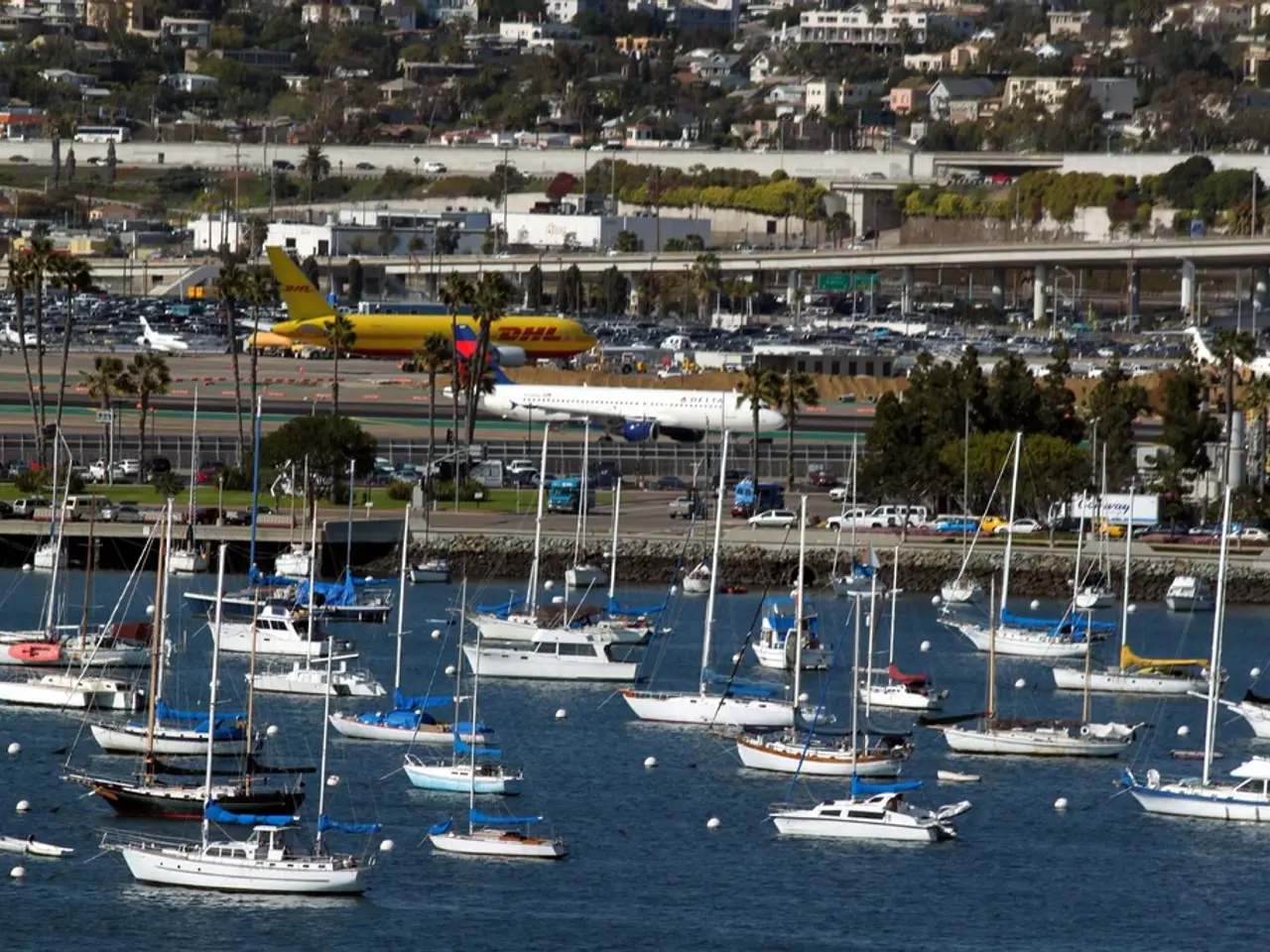EU Trade Agreement's Impact on U.S. LNG Exports Assessed by KBRA
The European Union (EU) has made a significant commitment to purchase $750 billion worth of U.S. energy products over the next three years, a move intended to significantly boost U.S. energy exports, particularly Liquefied Natural Gas (LNG). This ambitious plan could stimulate new U.S. LNG export projects, potentially driving positive impacts on credit ratings agencies like Kroll Bond Rating Agency (KBRA), which assess the creditworthiness of LNG developers and export infrastructure.
The $750 billion figure encompasses natural gas, oil, and nuclear fuel/reactors, representing a more than threefold increase in the annual U.S. energy exports to the EU compared to recent levels. This ambitious purchase commitment is likely to encourage investment in new LNG export capacity in the U.S. due to the expected increased demand from Europe, which seeks to replace Russian energy supplies after sanctions.
For rating agencies like KBRA, a large, long-term off-take commitment from a solid buyer like the EU typically improves credit profiles of LNG export projects, by reducing market risks and ensuring steady cash flows. Thus, KBRA ratings on future projects could improve assuming contracts are secured with the EU under this deal.
However, industry and independent analyses have questioned the realism of this target. The EU’s gas demand is declining overall as it transitions toward renewables, and it may not be able to increase LNG imports by the scale needed to meet the $750 billion target. IEEFA and other energy analysts warn that the plan is unachievable and could risk the EU’s energy security, suggesting that actual demand for U.S. LNG could fall short of the pledged volumes.
As of early 2025, the U.S. already holds a 55% share of EU LNG imports, indicating the U.S. is a dominant supplier. However, further substantial increases would require overcoming both logistical and market hurdles. If the EU commitment does not fully materialize, the expected boost in LNG project investments and associated positive credit impacts may be limited or delayed.
KBRA, along with other credit agencies, will likely monitor progress on contract signings, market demand trends, and actual deliveries to adjust project credit ratings accordingly. The EU's energy purchase commitment represents a potential but conditional catalyst for U.S. LNG export growth and improved credit profiles, hinging heavily on the EU’s ability to increase LNG imports as planned.
Contact Information:
- Adam Tempkin, Senior Director of Communications at KBRA: 646-731-1347, [email protected]
- William Cox, Global Head of Corporate, Financial and Government Ratings at KBRA: 646-731-2472, [email protected]
- Mark Lazarus, Senior Director at KBRA: 312-680-4177, [email protected]
[1] Source 1 [2] Source 2 [3] Source 3
- The anticipated increased demand from Europe for LNG, due to the EU's commitment to replace Russian energy supplies, is expected to drive investments in new LNG export capacity in the U.S. infrastructure.
- A large, long-term off-take commitment from a solid buyer like the EU, as described in the deal, typically improves the credit profiles of LNG export projects, reducing market risks and ensuring steady cash flows.
- If the EU commitment does not fully materialize, the expected boost in LNG project investments and associated positive credit impacts may be limited or delayed, potentially affecting energy security and stakeholders within the finance industry.




